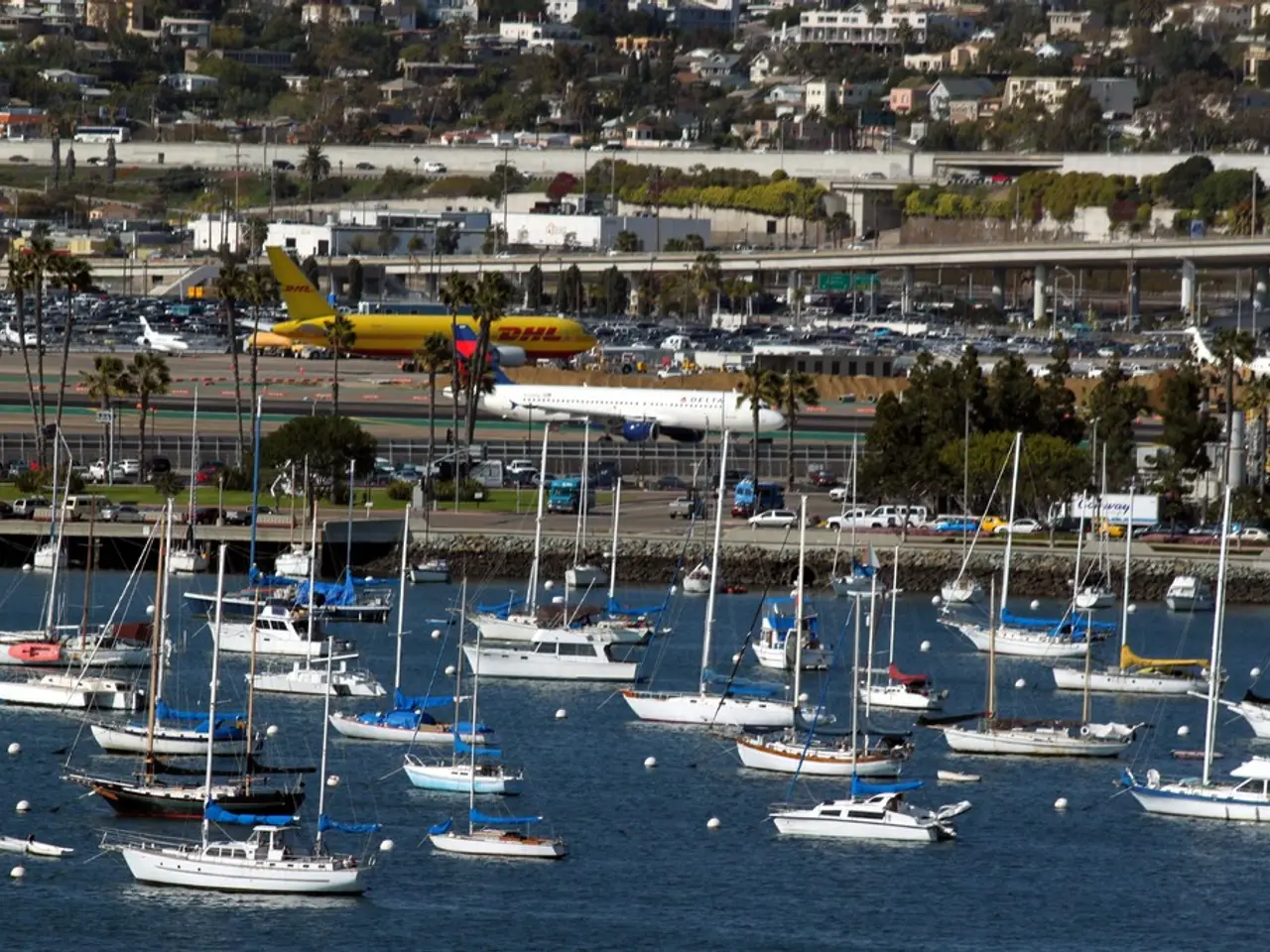UK Maritime Investment Opportunities
The maritime industry is currently facing significant challenges, including the need for decarbonisation and the adoption of new technologies like artificial intelligence and autonomous shipping. To address these issues, the UK is inviting participants to join a seminar that will delve into how the country is addressing these challenges and supporting the maritime industry into the future.
The key challenges for decarbonising the maritime industry include high carbon emissions from traditional shipping fuels, the need for new green fuels and technologies, infrastructure adaptation at ports, safety and skill development for new fuel types, and the requirement for large-scale investment and regulatory frameworks. Specific to the UK, challenges also involve revitalising shipbuilding with green technologies, decarbonising coastal and port operations, and integrating emission capture technologies efficiently.
The UK's approach to these challenges includes significant funding from the Clean Maritime Demonstration Competition (CMDC). This £30 million investment aims to boost local UK economies and jobs while reducing emissions. The funding supports the development of clean maritime fuels and technologies such as ammonia, hydrogen, methanol, solar, and electric propulsion. This includes the development of a Scottish-built high-tech wing sail saving ships up to 40% in fuel and emissions.
Additionally, the UK is supporting research hubs, like the Clean Maritime Research Hub funded with £3.85 million, which focuses on the scientific study and potential of liquid hydrogen as an emission-free fuel. Innovative projects such as the fully integrated carbon and emission capture system at the Port of Southampton, combining technologies to capture both CO2 and pollutants from ports without retrofitting ships, have also received funding from the CMDC.
Coordinated initiatives involving multiple stakeholders across maritime value chains are also being undertaken to de-risk investments, enable fuel adoption, and create scalable transition pathways. The UK is aligning with evolving regulatory timelines such as the IMO's decarbonisation targets planned for adoption by 2025 and implementation in 2028, alongside existing European frameworks like the EU ETS and FuelEU.
Regarding the potential involvement of artificial intelligence (AI) and autonomous shipping, while these technologies are not explicitly described in the UK's maritime decarbonisation strategy, they are widely recognized globally as complementary solutions. AI can optimize route planning, fuel consumption, and predictive maintenance to improve energy efficiency and reduce emissions. Autonomous ships can enable more precise and efficient operations, reducing human error and operational inefficiencies. Given the UK's investment in high-tech maritime research hubs and innovation funding, it is plausible that AI-driven technologies and autonomous vessel development will form part of future maritime decarbonisation efforts.
The seminar, scheduled to commence at 16:00, will feature keynote speeches and panel discussions with leading figures within the maritime community. Registration is encouraged to avoid disappointment, as spaces are limited. After the seminar, a networking reception will follow. Erika Gardiner can be contacted for any questions regarding the event.
The estimated cost of decarbonising the maritime industry ranges between $1.5 and $1.9 trillion. Alternative sources of finance will need to be considered due to this high cost. The goal is for the maritime industry to achieve net zero emissions by 2050. The event will also discuss the role of UK Government support in the maritime industry.
The event will explore the UK's position in addressing maritime challenges and supporting the industry through its financial and professional business services industries. Traditional financing sources may not be sufficient to cover the huge investment needed for decarbonisation. The event organizers reserve the right to limit the number of attendees per organization if the event is oversubscribed. The seminar is scheduled to conclude at 18:20.
[1] Source 1 [2] Source 2 [3] Source 3 [4] Source 4
Summary of key challenges and UK solutions:
| Challenges | UK Solutions and Initiatives | |---------------------------------|-------------------------------------------------------------------------------------| | High carbon emissions & fuel transition | £30 million funding for green fuels (ammonia, hydrogen, methanol, electric) and tech (wing sails) | | Port emissions and infrastructure | Integrated carbon and emission capture systems at ports (e.g., Southampton project) | | Need for research & innovation | £3.85 million to the Clean Maritime Research Hub focusing on liquid hydrogen | | Skills and safety for new fuels | Research and training initiatives via Maritime Just Transition Task Force | | Investment and risk | Stakeholder coordination to de-risk investment and enable fuel adoption | | Regulatory compliance | Alignment with IMO and EU decarbonisation regulations | | Potential role of AI & autonomy | Expected future integration for efficiency improvements and less emission-intensive operations (not explicitly detailed in current UK plans) |
[1] The UK is investing significantly in technology for decarbonising the maritime industry, with a focus on clean maritime fuels such as ammonia, hydrogen, methanol, solar, and electric propulsion. [2] To support this, the UK has established research hubs, including the Clean Maritime Research Hub, which is dedicated to the scientific study of liquid hydrogen as an emission-free fuel.




